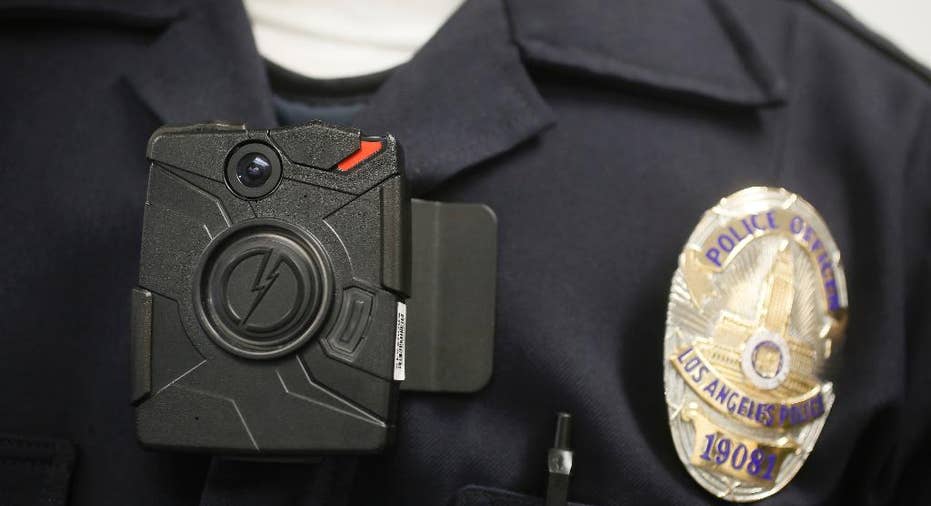Mayor says 7,000 Los Angeles police officers will have body cameras by next summer

LOS ANGELES – Mayor Eric Garcetti announced a plan Tuesday to equip 7,000 Los Angeles police officers with on-body cameras by next summer, making LA's police department the nation's largest law enforcement agency to move forward with such an ambitious expansion of the technology.
The plan was unveiled at a news conference where Garcetti said he was planning to put forward millions of dollars in next year's budget for the cameras, and that the first wave of more than 800 cameras would roll out as early as January.
"This is a huge step for law enforcement. No other major city is even close to implementation," said Police Chief Charlie Beck.
Los Angeles police commission President Steve Soboroff said he estimated the cameras would cost roughly $10 million for the first two to three years and would include technology and software from Arizona-based Taser International Inc.
"On the street things aren't always clear cut. This isn't TV. It's not easily scripted. It's not always easy to tie up the loose ends," Garcetti said. "So the more facts and evidence we have, the more likely it is that we can get to the truth no matter what happens on the street."
The announcement follows a year of multiple field tests of the body cameras on a small number of the Los Angeles Police Department's 9,900 officers.
Nationally, officers in one of every six departments now patrol with tiny cameras on their chests, lapels or sunglasses, and that number is growing.
After an outcry over the shooting of an unarmed black teen in Ferguson, Missouri, President Barack Obama recommended spending $74 million to equip another 50,000 officers with them.
Garcetti said the city would be applying for part of those funds.
"What happens in the smallest town in these United States affects all of us. What happens in Ferguson, a town not even the size of one of the police divisions in LA, has affected us, but we're stepping up," Beck said.
Beck said the cameras will not be officially in use until a policy has been devised with consultation from stakeholders and the public. It must be approved by the civilian oversight commission and City Council.
"Body cameras won't solve every problem in policing. But having video of police officers' interactions with the public will help hold officers' accountable for misconduct, quickly exonerate officers who are wrongly accused, and help the public understand the powers we give police and how they use them," said Hector Villagra, executive director of the ACLU of Southern California.
Villagra said the most important part of the process would be setting the guidelines overseeing the new technology, such as when the cameras are turned on and off, or whether officers can review the recordings after using force.
To address concerns about transparency, Los Angeles Councilman Curren Price introduced a motion Tuesday asking the LAPD to report on the status of its program as well as a timeline for its rollout and details on how that would happen.
Many law enforcement officials support cameras' use and say they are effective. The police department in Rialto, California, found after a yearlong University of Cambridge study last year that the cameras led to an 89 percent drop in complaints against officers, possibly reining in misbehavior on the part of the public and officers, as well as ultimately limiting department liability.
The Los Angeles Police Protective League has been in favor of the cameras, but the union is still working out details on how the cameras will impact privacy and working conditions for officers, President Tyler Izen said.
The LAPD has also received a $1 million National Institute of Justice grant given to study their use of body cameras on policing.
"The entire nation waits to see what happens in LA," Beck said.
Garcetti also said Tuesday he would nominate Beck for the President Barack Obama's Task Force on 21st Century Policing.
___
Tami Abdollah can be reached at http://www.twitter.com/latams .



















